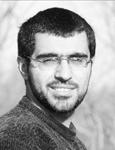How much of the news, especially international, is true that we receive from the media? Where do the honesty or dishonesty in them lie? What is the purpose behind providing particular news items to the public?
We have been told that North Korea has just tested nuclear missiles and are trying to test more, that Iran is desperately trying to gain nuclear power, having one ultimate reason: to destroy the US. We know that car bombs have become an everyday routine in Iraq; we know about the daily sectarian bloodshed that is destroying Iraqi lives every hour. We are even bored by hearing Al-Qaida threats on videotapes or sound tracks. We feel sorry for the lack of women’s rights in Iran and Saudi Arabia. We are terrified by the Islamists’ electoral achievements in certain Middle Eastern countries. We are angered by the massive demonstrations of Muslims that usually turn into violence. Yes, these are some of the major news that Americans receive from the massive communication media of the twenty-first century.
I agree that certain news cannot be denied when videos and live reports cry out loud from the screen. Nevertheless, there are other things that need to be questioned. For example: what is the language at use to explain the video report? What is the news program’s approach to the events? What about the timing in which the event is brought to surface? Whatever we see, hear or read from the media, it is important to be aware that news is not just there; news is basically manufactured.
The United States policymaking agencies as well as the general public depend heavily on a number of think tanks that provide information. “Experts” in different fields of political sciences and international relations run these think tanks. Most of the personnel supposedly have long experience in gaining and providing information about other countries and world events to the government and the mass media. But world politics, cultures, religions and habits are not learnt through books. Academic agencies cannot teach the psyche from which certain behaviors and policies are derived. Humans are the children of their environments; only the environment tells about the nature of the children.
I do not know how people simply believe what a “thinker” says about a certain group of people when that “thinker” has never lived among them at all. For instance, we hear some “specialists” give suggestions to solve the Iraqi sectarian problems without even been among any of the conflicting parties. The US policymakers suggest solutions to unifying or to separating Iraq into at least three states from thousands of miles away. Americans hear about the Shiite-Sunni clashes without even understanding their differences, their religious and cultural backgrounds. The world political leaders insist that the Palestinians quit demanding their lands back while those “leaders” have not had their lands occupied. Western secular liberals warn about the rise of Islamists in the Middle East without even living among Middle Easterners.
News is manufactured for specific reasons. There are many agendas behind one single news program. I believe that awareness about this fact will help to shake our prejudices, and make solving the many existing problems and misunderstandings between the people of the east and the people of the west possible. Internet, TV and other means of communication provide much knowledge, but they hide much more. This leads to the corruption of truth, for half truth is no truth. The modern media may have brought the corners of the world closer together, but has it moved the people who live in the world farther apart?





















































